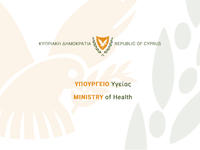Press Releases

12-07-2022 15:03
Updated joint statement from ECDC and EMA on additional booster doses of COVID-19 vaccines
The European Centre for Disease Prevention and Control (ECDC) and the European Medicines Agency (EMA) have updated public health recommendations on the use of additional booster doses of COVID-19 vaccines this summer and in the upcoming autumn and winter seasons.
The updated recommendations come amid increasing rates of COVID-19 reporting and rates of hospital and intensive care unit (ICU) admissions and occupancy in several countries, as reflected in the ECDC Country Overview Report (Country overview report: week 26 2022 (europa.eu), and in the context of the emergence of the Omicron lineages BA.4 and BA.5. These data signal that a new COVID-19 wave is ramping up across the European Union/European Economic Area (EU/EEA).
This statement is based on the assessment of current epidemiological trends and available scientific evidence. As such, it is preliminary and subject to change as more data become available.
National Immunisation Technical Advisory Groups (NITAGs) will ultimately make national decisions on the use of COVID-19 vaccines, taking into account the epidemiological situation in their countries.
Considerations for additional booster doses of mRNA vaccines
Authorised COVID-19 vaccines continue to be highly effective in preventing COVID-19 hospitalisation, severe disease and death even in the context of emerging SARS-CoV-2 variants and waning protection from natural and vaccine-induced immunity. In view of the current evidence, public health authorities in EU/EEA countries should consider the following:
- Improve uptake of the primary course and first booster dose in eligible individuals, especially for population groups at higher risk of severe outcomes and in countries with lower uptake of the primary course and first booster dose. It is important that efforts to reach these groups continue over the summer months with currently available vaccines.
- People over the age of 60 years and medically vulnerable populations remain at the greatest risk of severe disease. Mathematical modelling suggests clear benefits of an early second booster roll-out for protecting people over the age of 60 years. Therefore, an early second booster roll-out should be considered not only for the population aged 80 years and above but also for adults between the ages of 60 and 79 years and medically vulnerable individuals regardless of age to prevent severe disease and safeguard health system capacity. Countries should consider a rapid deployment of second booster doses with currently available vaccines. These could be administered at least four months after the previous one, with a focus on people who received a previous booster more than 6 months ago. This would be particularly relevant and impactful in countries where the BA.4/5 wave is starting or has not yet peaked.
- The early administration of a second booster dose of currently available vaccines in healthcare workers and people working in long-term care facilities is likely to offer only limited benefits due to the limited and rapidly waning protection against infection and transmission. Healthcare workers and staff at long-term care facilities may receive a second booster dose for their own protection if they belong to any prioritised group based on age or medical vulnerability. Residents at long-term care facilities should receive all recommended booster doses in accordance with this guidance.
- At the moment, there is no clear epidemiological evidence to support administrating a second booster dose in immunocompetent individuals below 60 years of age, unless they have medical vulnerabilities. ECDC and EMA will continue to closely follow vaccine effectiveness and epidemiological data and will update advice accordingly.
- EMA is working towards the possible approval of adapted vaccines in September. However, given the current epidemiological situation and forecasts, it is important to use the currently available vaccines now and not wait until adapted vaccines are available.
- In anticipation of the next expected wave in the autumn and winter seasons, countries should plan the rollout of further additional booster doses to be administered to population groups at risk of severe disease (e.g. those aged above 60 years and the medically vulnerable) in early autumn (provided sufficient time has elapsed since the administration of the previous booster dose), possibly combining campaigns for vaccination against COVID-19 and influenza.
- If adapted vaccines show increased neutralisation against Omicron variants of concern, indicating a possible higher protection against infection and transmission, the vaccination of healthcare workers and people working at long-term care facilities should also be considered for the autumn/winter rollout to provide both direct and indirect protection.
In April 2022, EMA and ECDC recommended that people over 80 years of age can receive a second booster dose of mRNA vaccines. Both agencies also noted at the time that if there was a significant resurgence of infections, people between 60 and 79 years old and medically vulnerable persons of any age should also be considered for a second booster dose. As a new wave is currently unfolding in Europe, it is important that public health authorities now consider these groups for a second booster.
Currently over half of the European Union/European Economic Area (EU/EEA) countries are already recommending and rolling out second booster doses of COVID-19 vaccines, mainly to older population groups. However, the uptake is still low and uneven across countries, as shown in the ECDC Vaccine Tracker.
ECDC and EMA will continue to closely evaluate emerging vaccine effectiveness and epidemiological data and will monitor the progress of the development of adapted vaccines. Authorities in the EU will also continue working closely together with the World Health Organization (WHO) and international partners on policies concerning adapted vaccines.
(AP)
Relevant Press Releases







